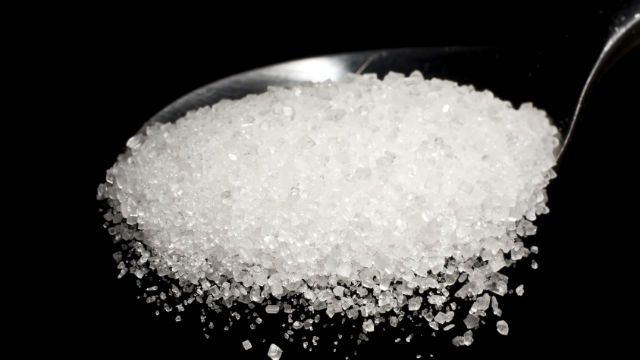
We have written a great deal about the dangers of artificial sweeteners. The fact that so much of our population sees these products as safe alternatives to sugar has made their use ubiquitous in diet sodas, as well as in many unexpected food sources.
However, recent research has linked the use of three common artificial sweeteners to changes in gut bacteria which may increase the risk of metabolic syndrome and type 2 diabetes. Ironically, the avoidance of these type of conditions is the reason that many people switch to artificial sweeteners in the first place.
The authors of the new study, published in the journal Nature, write: “NAS [non-caloric artificial sweetener] consumption is considered safe and beneficial owing to their low caloric content, yet supporting scientific data remain sparse and controversial. Here we demonstrate that consumption of commonly used NAS formulations drives the development of glucose intolerance through induction of compositional and functional alterations to the intestinal microbiota.”
Experiments in the study were performed with aspartame, sucralose and saccharin. In mouse studies, researchers found that transplanting the gut bacteria from mice who had been fed artificial sweeteners on a regular basis to those who had never been exposed to artificial sweeteners led to higher blood sugar. Genetic testing found that gut bacteria was altered by artificial sweeteners, and that these alterations potentially accounted for the rises in blood sugar.
In fact, aspartame, sucralose and saccharin were all found to alter the blood sugar levels of mice even more than regular sugar.
When the researchers surveyed human subjects who consumed artificial sweeteners, they found that artificial sweetener intake was indeed linked to metabolic risk factors, including weight gain. Another small-scale human study found that for some of the participants, artificial sweeteners led to changes in gut bacteria and subsequent high blood sugar, but in others, it did not. Researchers are looking further into this phenomenon, to explain why some people were affected, but not others.
Besides the potential metabolic ills outlined by this study, aspartame, sucralose and saccharin have been linked to many other dangers. Aspartame, commonly sold as Equal and NutraSweet, is manufactured from byproducts of genetically modified E. Coli bacteria, and is associated with side effects including headaches, blurred vision, depression, hyperactivity, seizures and hearing loss.
 Sucralose, which is often sold as Splenda, has been linked by some research to an increased risk of developing leukemia. Saccharin, known as Sweet’N Low, was linked to bladder cancer in animal studies over a decade ago, however, it is still approved by the FDA.
Sucralose, which is often sold as Splenda, has been linked by some research to an increased risk of developing leukemia. Saccharin, known as Sweet’N Low, was linked to bladder cancer in animal studies over a decade ago, however, it is still approved by the FDA.
When it comes to artificial sweeteners, there isn’t a truly safe one on the market, and what we don’t know may be even more dangerous than what we do. Instead, try sweetening your desserts and beverages with real fruit juices, raw honey, raw stevia leaves or organic coconut crystals – all in moderation, of course.
Your food and drinks will taste great, and you won’t have to worry about risking your health.
-The Alternative Daily
Sources:
http://www.sciencealert.com.au/news/20141809-26197.html
http://www.eurekalert.org/pub_releases/2014-09/wios-gba091514.php
http://www.nature.com/nature/journal/vaop/ncurrent/full/nature13793.html

